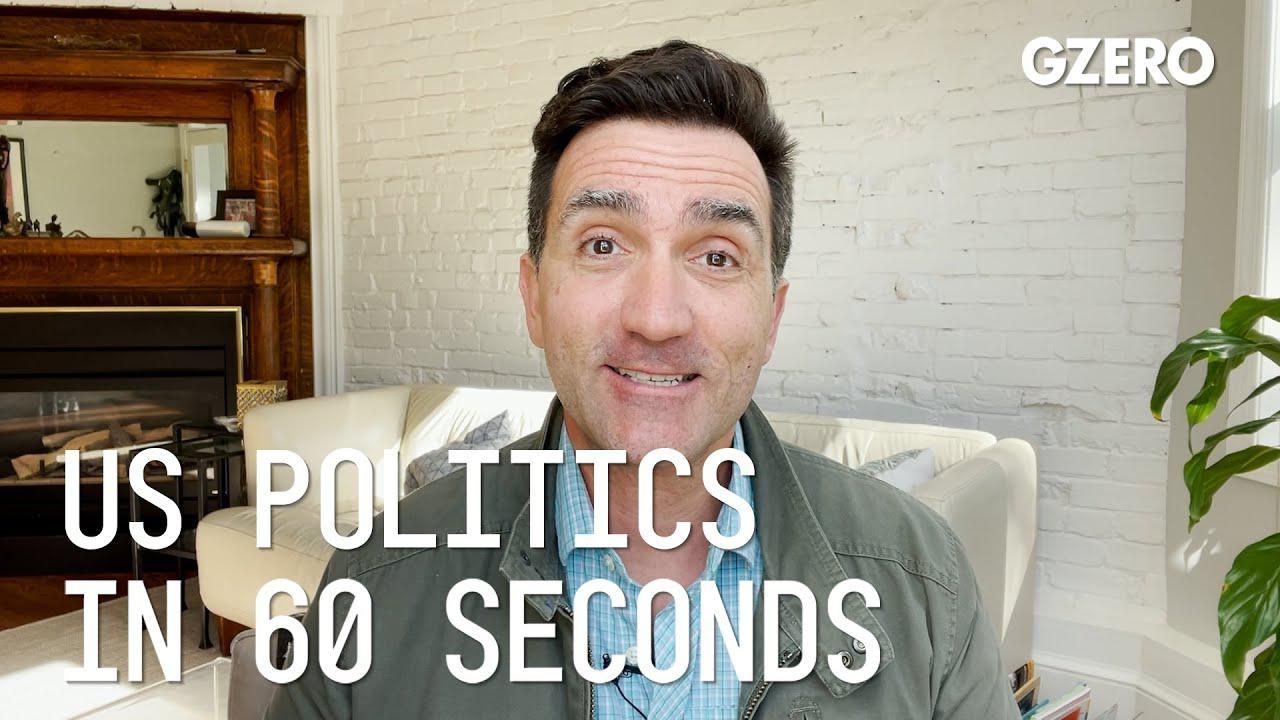US Politics In 60 Seconds
What you should know about Elise Stefanik’s rise in the GOP

What You Should Know About Elise Stefanik’s Rise in the GOP | US Politics In :60 | GZERO Media

Get insights on the latest news in US politics from Jon Lieber, head of Eurasia Group's coverage of political and policy developments in Washington:
Who is Elise Stefanik and what does she mean for the Republican Party right now?
Elise Stefanik is a young member from Upstate New York. She had originally started her career as a staffer in the George W. Bush administration, but in recent years, has turned into one of the most outspoken defenders of President Donald Trump, particularly during the impeachment trial last year. She's relevant right now because it looks like she'll be replacing Liz Cheney, the Representative from Wyoming and also the daughter of the former Vice President, who has been outspoken in her criticism of President Trump since the January 6th insurrection, and probably more importantly, outspoken in her criticism of the direction of the Republican Party.
The irony here though, is that while Cheney is going down, she's being replaced by somebody who, when she came into office, was expected to be a pretty standard-bearing Bush Republican. And so this is just really indicative of where the Party is, very hard to stay on in Republican leadership if you aren't going to be a supporter of President Trump. Too many of Cheney's colleagues thought she had become a distraction and wanted her gone. Stefanik is probably a placeholder. She says she doesn't want to serve in the position long-term. She eventually wants to take over the chairmanship of a committee, and she has many years ahead of her in Congress. She is very young.
What's the outlook for the Democrats' election bill?
Well, the Democrats in the House and Senate have introduced a bill to rewrite federal election law. Traditionally, election laws have been set by the state. States are allowed to choose how to do their redistricting. They're allowed to choose how people vote. Do they do mail-in votes? Do they have no-excuse mail-in votes? How many days of early voting are they going to allow? And, the Democrats bill would append that entire regime, and create a federal standard that every state would have to meet for number of days of pre-election day, in-person voting, standards around absentee voting, how to draw districts, taking it away from partisan gerrymandering and moving it towards a commission, in most states. And, there's been a lot of opposition to it. So the Democrats argue that this bill is necessary because Republicans are passing what they think are restrictive voting laws across the country. And Republicans are saying the Democrats are trying to take over and federalize elections to increase the chances that they win future elections and hold onto their current majorities in the House and Senate. And there's truth to both claims. The bill is very unlikely to move anywhere. It has 49 Democratic Senators who support it, who are co-sponsors, and one Democratic holdout, Joe Manchin. But even if Manchin never came around and said he supported the bill, it would require 60 votes to overcome a filibuster in the Senate, or the elimination of the legislative filibuster, so it's very unlikely to pass into law. You know this is a really big deal for the Democrats. They've given it the special designation S.1 in the Senate, H.R.1 in the House, which is a symbolic act suggesting this is their highest priority. But also, in a Rules Committee hearing earlier this week, both Majority Leader, Schumer, and Republican Minority Leader, McConnell, showed up to debate the bill in-person, debate amendments, and there've been multiple showdowns on the Floor. This is a really high-stakes piece of legislation. It would fundamentally tip the balance of power in favor of the Democrats were it to pass, which is, among other reasons, why Republicans are so opposed to seeing it get into law.
With close ties to both the US and China, can Singapore survive in an increasingly fragmented and chaotic world? Singapore’s President Tharman Shanmugaratnam joins Ian Bremmer on the GZERO World Podcast.
Think you know what's going on around the world? Here's your chance to prove it.
This week, Prime Minister Keir Starmer became the first UK leader to visit China in eight years. His goal was clear: build closer trade ties with Beijing.